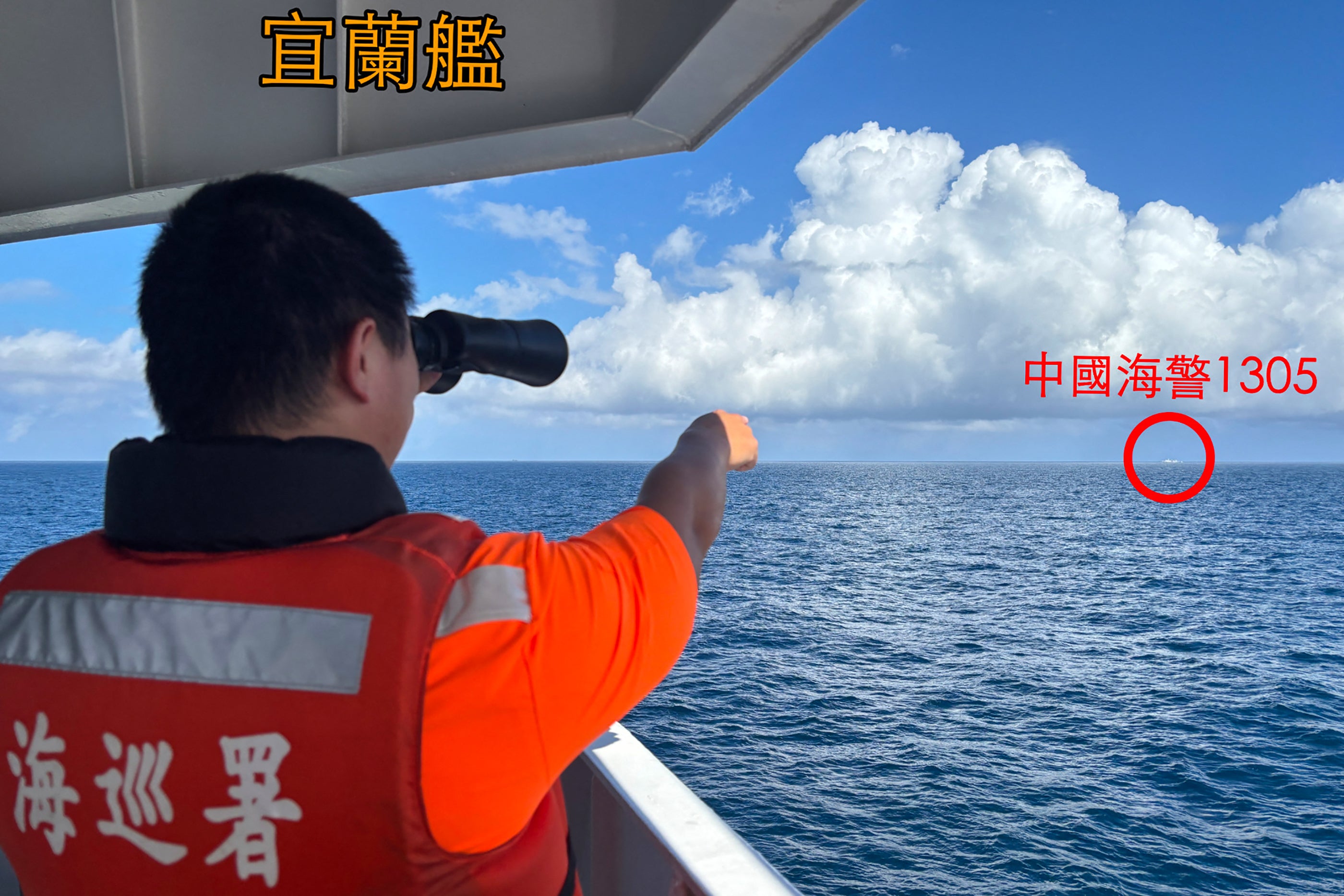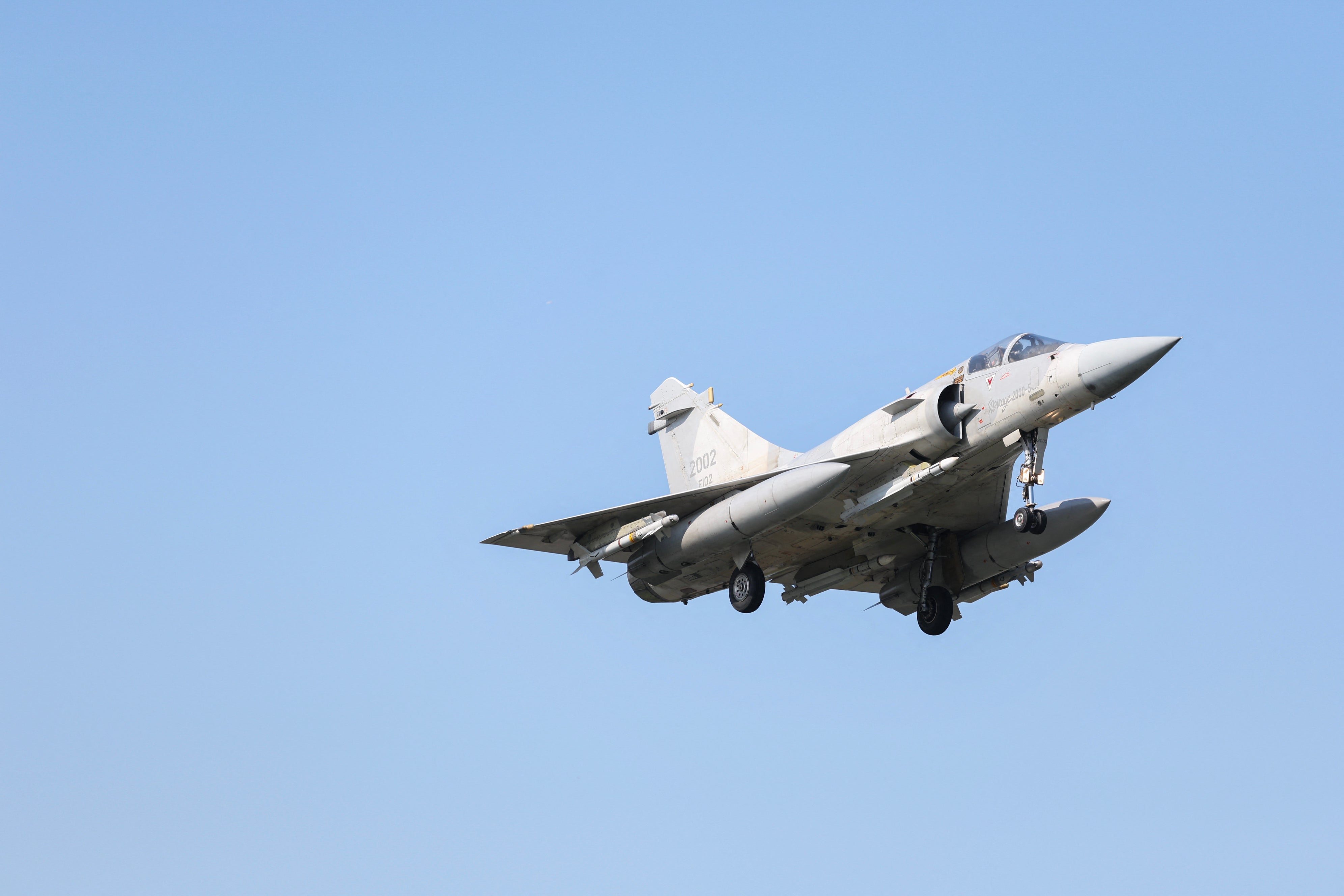Your support helps us to tell the story
This election is still a dead heat, according to most polls. In a fight with such wafer-thin margins, we need reporters on the ground talking to the people Trump and Harris are courting. Your support allows us to keep sending journalists to the story.
The Independent is trusted by 27 million Americans from across the entire political spectrum every month. Unlike many other quality news outlets, we choose not to lock you out of our reporting and analysis with paywalls. But quality journalism must still be paid for.
Help us keep bring these critical stories to light. Your support makes all the difference.
China launched a fresh round of war games around Taiwan, encircling the island and its outlying territories after president Lai Ching-te delivered a National Day address that apparently angered Beijing.
The People’s Liberation Army said on Monday that it was starting “joint assaults” involving its land, naval, air and rocket forces to practise “combat readiness patrols, blockades of key ports and areas, assaults on maritime and ground targets, and the seizure of comprehensive superiority”.
The PLA Eastern Theatre Command said the drills were a “stern warning to the separatist acts of ‘Taiwan Independence’ forces“.
The war games were widely anticipated and Taiwan was on high alert after Mr Lai vowed to resist “annexation” by Beijing during his address last week.
He said “China has no right to represent Taiwan“ and that he “will uphold the commitment to resist annexation or encroachment upon our sovereignty”.
Taiwan’s Mainland Affairs Council, which formulates its China policy, claimed the speech was an extension of goodwill, offering to “shoulder the responsibility of maintaining peace in the Taiwan Strait together with the Chinese communists”.
“Using military force to threaten other countries goes against the basic spirit of the United Nations charter to peacefully resolve disputes,” Joseph Wu, national security council secretary general, told reporters in Taipei.

The Chinese military did not provide a timeline for when the drills would end.
The PLA did not conduct any live fire drills, unlike during similar exercises in 2022, when then US House Speaker Nancy Pelosi visited Taiwan and Beijing fired missiles over the island.
A map published by the Chinese military showed nine areas around Taiwan where the drills were taking place—two on the east coast, three on the west coast, one to the north, and three around islands close to the Chinese coast. The PLA referred to the operation as “Joint Sword 2024 B”, a sequel to the “Joint Sword 2024 A” exercises held following Mr Lai’s inauguration in May.
The Chinese military intensified exercises around Taiwan’s waters and airspace after Mr Lai, whom Beijing has denounced as a “dangerous separatist”, took office earlier this year.

China regards Taiwan as its territory and regularly sends military planes and warships around Taiwan in what Taipei describes as attempts to intimidate its public and armed forces.
In response to the latest Chinese drills, Taiwan’s defence ministry said on Monday that it “strongly condemns the PLA’s irrational and provocative actions” and pledged to deploy appropriate forces to defend its sovereignty.
The ministry reported that, as of 8 am on Monday, 25 PLA aircraft and 11 vessels were operating around Taiwan. It also noted that “16 of the aircraft crossed the median line of the Taiwan Strait and entered Taiwan’s southwestern and eastern ADIZ”, referring to the Air Defence Identification Zone, a self-declared international airspace used to monitor foreign aircraft.
The ministry said it had put defence zones on Taiwan’s outlying islands on “heightened alert” and deployed aircraft and warships.
The US said it was following China’s military exercises around Taiwan and called Mr Lai’s speech “routine”.
State Department spokesperson Matthew Miller called on China “to act with restraint and to avoid any further actions that may undermine peace and stability across the Taiwan Strait and in the broader region, which is essential to regional peace and prosperity and a matter of international concern”.

